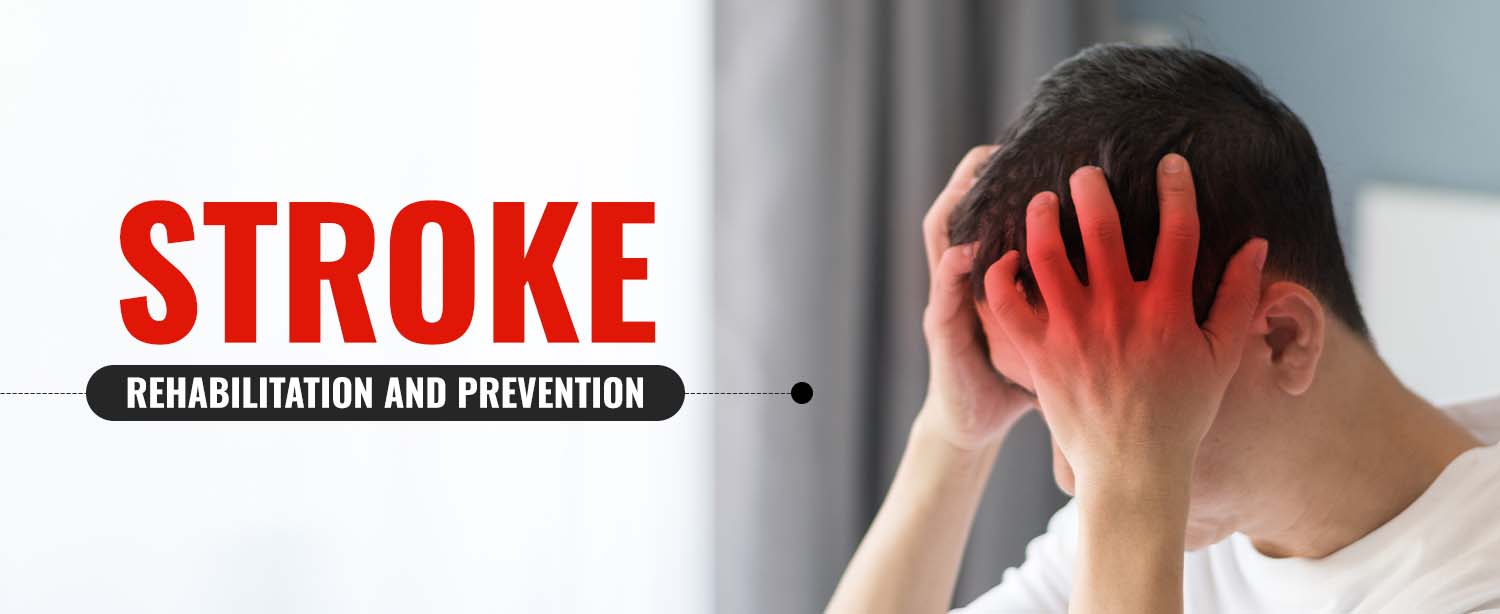Stroke is one of the leading causes of death and disability in India, which accounts for 60% of all stroke patients globally. A stroke happens when the blood supply to the brain is interrupted or reduced due to a blockage or leak in the blood arteries. When this occurs, the brain’s cells begin to deteriorate because it is not getting enough nourishment or oxygen. The brain’s blood supply is reduced or blocked during a stroke. A person experiencing a stroke needs prompt emergency treatment. Every year, 1.8 million people in India experience a stroke, and only early treatment can lower morbidity and mortality caused by this disease.
Types of Stroke
Stroke is a cerebrovascular disease. This indicates that it has an impact on the blood arteries that carry oxygen to the brain. Damage could begin if the brain does not get sufficient oxygen.Even while many strokes are curable, others can be fatal or leave a person disabled.
There are three main types of stroke:
- Ischemic stroke
This is the most common type of stroke, where a blood clot prevents blood and oxygen from reaching an area of the brain. - Hemorrhagic stroke
This type of stroke occurs when a blood vessel ruptures. - Transient ischemic attack (TIA)
This occurs when blood flow to a part of the brain is insufficient for a brief period of time. Also called ministroke, the normal blood flow resumes after a short amount of time, and the symptoms resolve without treatment.
Symptoms of Stroke
A stroke is a medical emergency, so the sooner you receive care, the better. The long-term effects of a stroke might differ from person to person depending on the type of stroke and the part of the brain that is damaged. It may lead to:
- Cognitive symptoms like memory problems and trouble speaking
- Physical symptoms such as vision changes, headache and difficulty swallowing
- Emotional symptoms like depression
Watch out for these F.A.S.T. warning signs of a Stroke:
- F – Face drooping
- A – Arm weakness
- S – Slurred speech
- T – Time to call the Emergency services
Without oxygen, every second counts, and brain cells start to perish within minutes. When brain tissue dies, the portions of the body it controls won’t function properly. As a result, the leading cause of long-term disability is stroke. Brain damage can be stopped by clot-busting medications, but they must be administered quickly — often within three hours of the onset of symptoms.
Stroke Rehabilitation
A stroke can have serious cognitive and emotional impact on the patient. Neuropsychologists and rehabilitation psychologists can perform screenings for these issues and establish a plan to enhance cognitive performance and foster resilience in the face of potential long-term lifestyle changes. Working with a patient to execute a variety of actions, including walking or combing hair, during physical and occupational therapy can help identify which parts of the brain are impaired. Speech-language therapy is crucial for patients who have trouble swallowing due to stroke or aftereffects of having a breathing tube.
Stroke Prevention
When it comes to preventing a stroke, simple lifestyle changes can make all the difference. Here are important changes in your lifestyle that can help reduce your risk of getting a stroke:
- Move more
- Stop smoking
- Eat more vegetables
- Avoid alcohol
- Control blood pressure
- Control cholesterol levels
- Maintain a healthy weight
- Control your diabetes
- Treat atrial fibrillation
Stroke care at Kokilaben Dhirubhai Ambani Hospital, Mumbai
Kokilaben Dhirubhai Ambani Hospital, Mumbai has established a comprehensive stroke care programme for the management of acute and chronic stroke patients. The Code Stroke Plan includes stroke ambulance, emergency care services, neuro-imaging, neurological intensive care unit, neuro-intervention services, neurosurgical services, and a dedicated stroke unit. Our team offers comprehensive acute neurointervention services under highly trained experts. The Centre for Neurosciences has conducted over 1500 brain surgeries for stroke in the past with successful outcomes. Further we also offer a Stroke rehabilitation program that provides an optimal environment for recovery, functional improvement, and reduction in secondary complications and disability.
Kokilaben Dhirubhai Ambani Hospital (KDAH) is one of the only private hospitals in Mumbai and more so in Western India to have a comprehensive Level-1 Accident & Emergency Department (A&E) for patient care, training and research. The Trauma Centre is reputed to respond the fastest in times of a stroke, which ensures higher recovery chances. If you believe you or someone you know is having a stroke – call our emergency services on 022 42699999 immediately. Making the decision to call for medical help can make the difference in avoiding a lifelong disability. Please find below the link to our website:
https://www.kokilabenhospital.com/departments/centresofexcellence/centrefor_accidentemergency.html


